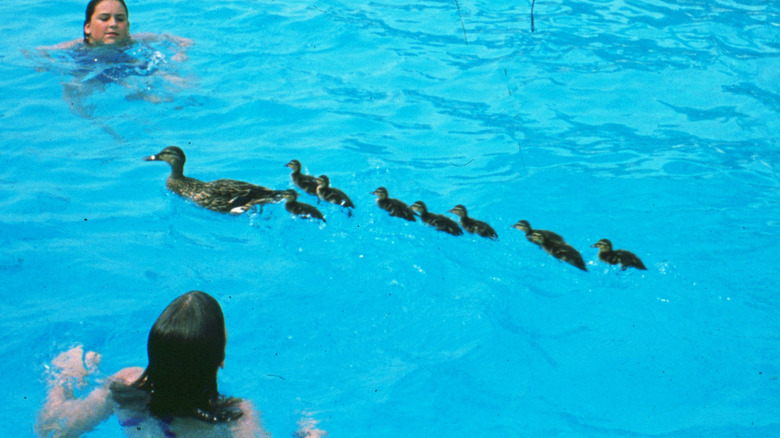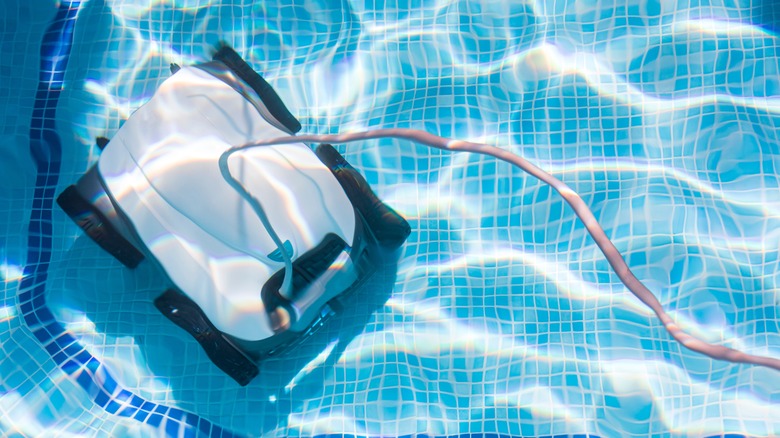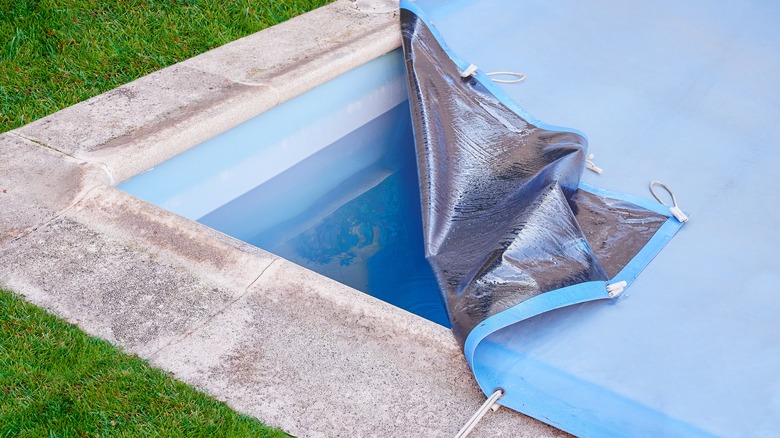What To Do If Ducks Won't Stay Away From Your Swimming Pool
As soon as summer approaches, you wait on pins and needles for the perfect time to open your pool in the backyard and go for a refreshing swim. However, your moment of bliss will be cut short if you hear ducks quacking in a nearby bush or find them floating lazily next to you. While you might find them adorable, it's best to avoid swimming in the same waters as their droppings. So, to keep your family protected and ensure a safe pool environment for your children, encourage these feathered creatures to leave the premises. An easy method is to get hyper-realistic pool toys depicting predatory animals, like alligators, whales, snakes, and sharks, to scare the ducks away. Swans, their sworn archenemies, work equally well.
Although ducks aren't dangerous to humans, having them in your pool can make you sick. Their droppings won't just turn your clear pool water cloudy and dirty; they also contain disease-causing germs. According to the CDC, duck droppings may harbor varied germs, including Salmonella, E. coli, Cryptosporidium, and Campylobacter. Granted, a well-chlorinated pool will take care of most germs, but your luck will run out if the water doesn't have the right amount. Plus, Cryptosporidium can remain alive for several days even in adverse conditions. Worse, ducks can harm their internal organs if they drink a substantial amount of chlorinated water. Thus, it's best to actively repel ducks from your swimming pool.
Humane ways to keep ducks out of your swimming pool
As mentioned, the easiest way to keep ducks away from your swimming pool is to invest in quality animal pool toys (bright-colored floaties also work). The moving objects with sharp jaws will remind them of predators in the natural environment and scare them. However, keep in mind that this method is temporary at best and won't work after the ducks get accustomed to them. Another low-cost effective approach is to unleash your pet dog on the ducks in the pool. Your furry friend's howls and barks will scare the gentle creatures. However, this won't provide satisfactory results if your dog's stature is small or it's a big softie and isn't into chasing intruders away (you can always train them to act intimidating, though).
If you have a motion-activated sprinkler, let it monitor the duck's movements and stun them away. Another easy way is to run your automatic pool cleaner. The moving machine emitting strange noises and disturbing the calm pool waters will remind them of predators, scaring them off. Speaking of predators, strategically placing life-like fake owls around the pool will keep the ducks away. For best results, get decoys featuring blinking eyes or moving heads. You can even spring for motion-activated owls that emit hooting sounds upon detecting movement. Finally, place three-foot stakes around the perimeter and stick mylar strips on them in an 'X' shape.
Preventative measures to keep ducks away from your swimming pool
The primary step to prevent ducks from making themselves at home in your backyard is to keep your swimming pool entirely covered whenever it's not in use. Moreover, don't give them food, no matter how endearing you find them. In a similar vein, remove fruit-bearing plants from your pool's immediate vicinity to take away a food source. Additionally, give your tall shrubs a haircut from time to time to discourage ducks from building a makeshift nest to lay their eggs. Further, keep your pool clean and tidy to avoid ducks mistaking it for a pond. The important thing to remember is that just one method might not provide satisfactory results, so combine two to three ways.
Avoid using methods like laying down fishing line or bird netting over the water's surface since they aren't always visible to the ducks, especially if you choose a black bottom pool for your yard. When they unknowingly land on top of these traps, it'll be difficult for them to untangle themselves and fly away without sustaining injuries or drowning. Besides being unnecessarily cruel, you'll also be in violation of the Migratory Bird Treaty Act of 1918 that protects multiple duck species. However, if none of the above-mentioned methods work, contact U. S. Fish & Wildlife Services or reach out to your state-appointed wildlife agency and let them take care of the situation.


